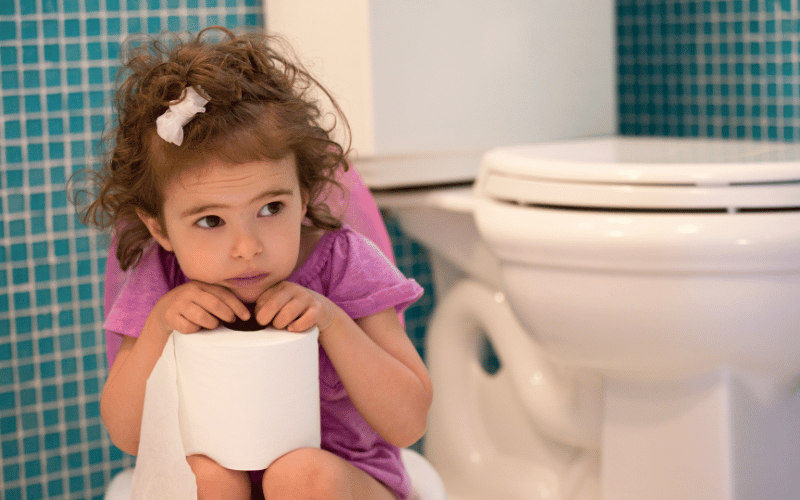4. Unsuccessful Efforts to Pass Stool: The Frustration of False Alarms

Most of us take the act of passing stool for granted. It’s a routine, daily activity that doesn’t demand much thought. However, for a child with fecal impaction, it becomes a center of focus, often marked by frustration and despair. Despite feeling the urge to go, the actual act becomes a challenge.
The sensation of needing to pass stool, yet being unable to, is one of the hallmark symptoms of fecal impaction. This is not the casual “I think I need to go” feeling; it’s a pressing, persistent urge. But when the child tries, they might only pass a small quantity or, at times, nothing at all.
It’s interesting to note the psychological impact of this symptom. Over time, the repeated unsuccessful attempts can lead to a sense of dread or anxiety associated with the toilet. Children might start avoiding it altogether, fearing the disappointment or the physical strain of trying to pass stool.
The physical act itself can be different too. Straining becomes a common feature, with children often spending prolonged periods in the restroom, hoping for some relief. This straining can lead to additional complications, making the situation even more challenging.
While it’s natural for children to have occasional constipation, it’s the persistent, unyielding nature of this symptom that sets it apart. Caregivers should be observant of their child’s bathroom habits, the time spent, and any signs of distress or avoidance. (4)